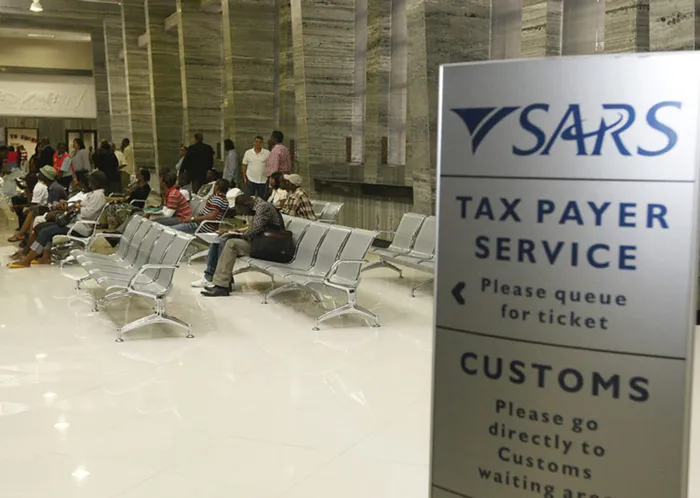
With tax season upon us, the Southern African Fraud Prevention Service warns of a surge in scams targeting unsuspecting taxpayers.
Image: File photo.
The Southern African Fraud Prevention Service (SAFPS) has issued a stern warning to the public, urging greater vigilance during the tax season.
According to the SAFPS, tax filing season in South Africa is traditionally viewed as a period of economic accountability and fiscal discipline.
It offers individuals the opportunity to realign their financial affairs and contribute to the nation’s revenue system. Yet, beneath this routine of compliance, a darker threat is emerging—an alarming spike in digital fraud targeting unsuspecting taxpayers.
The SAFPS says with the South African Revenue Service (Sars) rolling out pre-assessments to simplify submissions, fraudsters are leveraging this convenience to orchestrate increasingly sophisticated scams that mimic official Sars communication.
SAFPS CEO Manie van Schalkwyk says: "Fraudsters are exceptionally active during this period, and taxpayers must stay alert to the latest tactics being used to steal personal data and funds".
Van Schalkwyk says that scammers often impersonate Sars officials in a bid to manipulate victims into voluntarily handing over sensitive information or making fraudulent payments.
“There are a few scam tactics that the public should be aware of to protect themselves,” he says.
Phishing Emails and SMSs
Phishing remains a dominant tactic, with scammers sending convincing emails and text messages designed to resemble legitimate Sars correspondence. These messages frequently include links to bogus websites where personal details are solicited.
"Our brains are conditioned to gloss over subtle differences unless we're actively scanning for them. This is exactly what makes these tactics so dangerous," says Van Schalkwyk.
Fraudsters may alter a single character in a hyperlink, replacing “South Africa” with “South Afrìca,” for example, to trick users into clicking. These links often redirect users to malicious websites that compromise personal data under the guise of verifying banking details, issuing refunds, or auditing returns.
“The email may say it’s from Sars and look realistic, however, if you look at the actual email address, it is not an official Sars email address. Scammers can change the display name to appear as Sars, and if you are not concentrating, you could click on the link or action the request due to fear. Carefully examine the sender’s email address, and if it does not include @SARS.gov.za – it is likely a scam," he says.
Impersonation of Sars Official
Van Schalkwyk says the growing prevalence of impersonation scams, where con artists initiate direct contact claiming to be Sars representatives.
He says these criminals often deploy urgency and panic to gain trust, warning taxpayers of supposed errors or potential fines.
"It is important to note that an official Sars representative will never ask for this information," he says.
Their endgame? Extracting tax numbers, ID numbers, or login details under the guise of offering assistance.
eFiling profile hijacking
Another disturbing trend is the hijacking of eFiling profiles. Fraudsters exploit personal information to access legitimate profiles, change banking details, and reroute refund payments into fraudulent accounts. These cases reflect a more sophisticated form of identity theft linked to previous, seemingly legitimate Sars interactions, says Van Schalkwyk.
One reported victim, a 68-year-old taxpayer, lost R37,000 after his refund was paid into an account fraudulently created under his name. Despite providing accurate banking information during his filing appointment, the payment was diverted. Similar incidents across multiple banks have highlighted the scale and complexity of this crime, he says.
Fraudulent letters of demand
Sars has flagged a surge in fake letters purporting to be from Sars attorneys, demanding urgent payments to illegitimate accounts. These communications, while official-looking, are designed to elicit panic-driven financial transfers and prey on taxpayer confusion.
Stay safe: cybersecurity tips from SAFPS
In light of these dangers, SAFPS urges taxpayers to adopt robust security measures and remain alert to red flags:
"Proactive awareness is the strongest defence against digital fraud during this critical financial period," says Van Schalkwyk.
Taxpayers who suspect their refunds have been compromised should act immediately by:
PERSONAL FINANCE